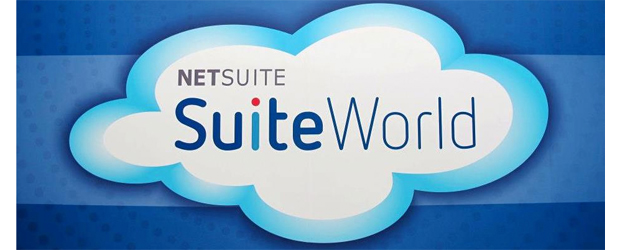SAN JOSE – NetSuite CEO Zach Nelson is known for his, shall we say, frank assessments of the business decisions of his enterprise resource planning (ERP) software competitors. During his keynote this year through at the annual SuiteWorld user conference, Microsoft was moved from the foes category to the friends.
After all, it would have been awkward had Nelson launched his usual broadside at Microsoft – and then had CEO Satya Nadella pop up on the video screen to greet SuiteWorld attendees. In fact, NetSuite and Microsoft will be working together a lot more closely in the future.
The two vendors announced a new strategic cloud alliance focused around Office 365 and Microsoft Azure. Integration for single sign-on between NetSuite and Azure Active Directory is available now, tighter integration between NetSuite and Office and 365 is on the way to allow access to both solutions from a single interface, and NetSuite itself will leave Amazon Web Services for Azure.
“Tighter integration between Office 365 and NetSuite is going to be great for all of us. We’re getting the best, richest, most secure productivity tool on the planet, and when we look at where you’re taking NetSuite, productivity is what it’s all about,” said Nelson. “The integration we’re doing with Microsoft will yield a lot of benefit for you.”
The view from Montreal
Partners certainly seem to agree. Mark Rhyman, co-CEO and chief business development officer of Montreal-based NetSuite partner Big Bang ERP, said the alliance is awesome news that will help his company a lot.
“Many times we’ve come across sales deals and they’ve asked if we have Outlook integration because they want to see bi-directional calendar and email synch. That’s a gap missing right now for people using Outlook,” said Rhyman. “We have integration with Google, and now with Office we can give the customer a choice.”
NetSuite’s launch of SuiteCommerce InStore will also have a big impact on Big Bang, said Rhyman. They’ve lost a few deals, particularly in the Quebec market, because Retail Anywhere has unilingual and had limited ability to customize.
“SuiteCommerce InHouse will give us the ability to put in the level of customization our customers want,” said Rhyman.
Overall, Rhyman said the Canadian market is still fragile but it’s not affecting sales. The barriers he sees have been more about culture than the economy. While the older generation has been resistant to the cloud model, he said the new generation is jumping in with both feet and he has closed 12 deals in Quebec in the last month.
“The cloud wave in Quebec and Canada is starting to get there. The next three years will be tremendous,” said Rhyman. “The new generation is the main success factor in selling cloud, and also marketing and messaging by NetSuite and Salesforce.com putting out the news cloud is robust and availability is not an issue.”
NetSuite and the channel – -going vertical
Nelson told SuiteWorld attendees that the company hasn’t quite yet cracked the code for how to sell cloud computing through the channel. The share of NetSuite’s business through the channel has been steady at 30 to 40 per cent or several years, growing at the same pace as the rest of the business.
“In the early days, we were as disruptive to partner business as we were to Microsoft’s. We need to figure out how we partner with our partner’s partners,” said Nelson. “I think the channel will evolve. We certainly haven’t cracked the code – and no one has – on how you use the giant midmarket channel to deliver cloud solutions.”
Cracking that code is the responsibility of Craig West, NetSuite’s vice-president of channel sales, and he launched a number of new programs for partners at SuiteWorld’s partner kickoff to help grow channel sales.
One key new initiative is the vertical velocity program, which West said is really about micro verticals.
“NetSuite is a broad general business suite that meets 80 to 90 per cent of business needs, and we customize for the last mile. But for micro verticals, it’s broader,” said West. “We’ve launched a program with enablement elements to help partners get into these micro verticals and grow and get customers we couldn’t get to otherwise.”
Other new initiative sees a nurturing element added to NetSuite’s lead registration system. The lead registration program already allows partners to register a lead with NetSuite, which will make all commercially reasonable efforts not to market to that lead as they’re running the sales cycle. To help warm up some of those leads that may be going stale, partners can opt into marketing assistance from NetSuite.
“They can opt their leads into our lead nurture program on a partner of individual lead level and have them marketed to and, if the nurture program activates the lead, it goes back to the partner,” said West.
NetSuite’s goal is to move its channel to a vertical focus; today, West admits their channel partners are still largely generalists.
“Our message for a few years has been this transition to verticals is the future,” said West. “The reason why so many are still generalists today is a vestige of the old on-premise software model. You were the Dynamics guy in Toronto because you had to be near the server; geographic disparity was too hard. We think verticals really are the future. It is an element of jumping into the deep end; you can’t be half vertical. Your value will only resonate with customers when it’s clear you’re an expert in their industry.”





